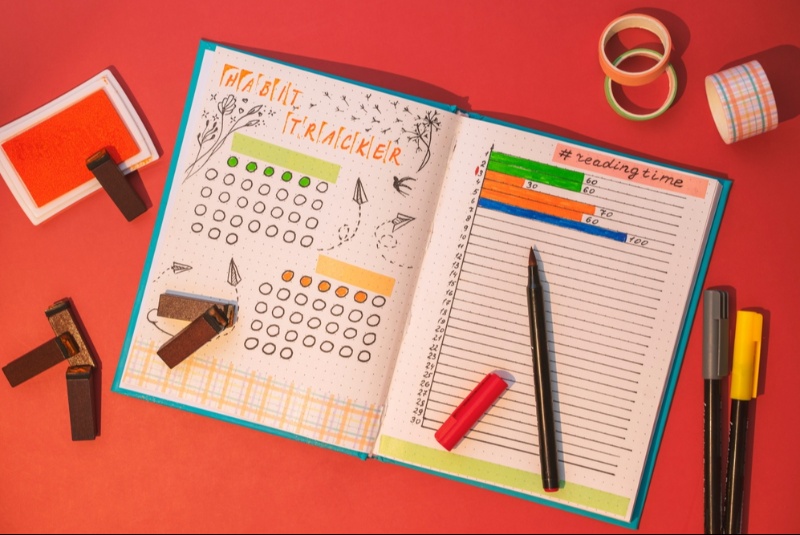Concentration is a crucial skill that impacts productivity, learning, and overall performance in various aspects of life. However, maintaining focus can be challenging due to numerous distractions and demands on our attention. This comprehensive guide provides practical tips and strategies to help you improve your concentration, ensuring you can stay focused and achieve your goals more effectively.
Understanding the Importance of Concentration
Concentration is the ability to focus one’s attention on a specific task while ignoring distractions. It plays a vital role in accomplishing tasks efficiently, learning new information, and performing well in both personal and professional settings. Improved concentration enhances memory, problem-solving skills, and creativity. Understanding the importance of concentration highlights its impact on productivity and success, motivating you to develop and implement strategies for better focus.
Creating a Distraction-Free Environment
A cluttered and noisy environment can significantly hinder your ability to concentrate. Create a dedicated workspace that is free from distractions such as unnecessary items, loud noises, and electronic devices not related to your task. Use noise-canceling headphones or play background music if it helps you focus. Ensure your workspace is well-organized, clean, and comfortable. Creating a distraction-free environment ensures you can maintain focus on your tasks, improving productivity and concentration.
Establishing a Routine
Establishing a consistent routine can help train your mind to concentrate during specific times. Set a regular schedule for your tasks, incorporating breaks to avoid burnout. Begin with the most challenging tasks when your concentration levels are highest, typically in the morning or after a break. By following a routine, you condition your brain to focus better during work periods, enhancing overall concentration and efficiency.
Setting Clear Goals and Priorities
Having clear goals and priorities helps you stay focused and motivated. Break down larger tasks into smaller, manageable steps, and set specific, achievable goals for each session. Prioritize your tasks based on their importance and deadlines. Use tools like to-do lists or digital planners to keep track of your progress. Setting clear goals and priorities ensures you have a clear direction and purpose, reducing the likelihood of distractions and procrastination.
Practicing Mindfulness and Meditation
Mindfulness and meditation are powerful techniques for improving concentration. These practices involve focusing your attention on the present moment and training your mind to stay calm and centered. Regular mindfulness meditation can enhance your ability to concentrate by increasing awareness and reducing stress. Start with short sessions of deep breathing or guided meditation and gradually increase the duration as you become more comfortable. Practicing mindfulness and meditation ensures you develop greater mental clarity and focus.

Taking Regular Breaks
Taking regular breaks is essential for maintaining concentration and preventing mental fatigue. The Pomodoro Technique, which involves working for 25 minutes and then taking a 5-minute break, can be highly effective. Use breaks to stand up, stretch, or take a short walk to recharge your mind and body. Avoid engaging in activities that could lead to extended distractions, such as browsing social media. Taking regular breaks ensures you stay refreshed and focused throughout your work sessions.
Eating a Healthy Diet
A healthy diet plays a significant role in maintaining optimal brain function and concentration. Foods rich in omega-3 fatty acids, antioxidants, and vitamins, such as fish, nuts, berries, and leafy greens, support cognitive health. Stay hydrated by drinking plenty of water, as dehydration can impair concentration. Avoid excessive consumption of sugar and caffeine, which can lead to energy crashes. Eating a healthy diet ensures your brain receives the nutrients it needs to function efficiently, enhancing concentration and mental clarity.
Getting Enough Sleep
Adequate sleep is crucial for cognitive function and concentration. Aim for 7-9 hours of quality sleep each night to allow your brain to rest and rejuvenate. Establish a regular sleep schedule by going to bed and waking up at the same time every day, even on weekends. Create a relaxing bedtime routine and a sleep-conducive environment by keeping your bedroom cool, dark, and quiet. Getting enough sleep ensures your brain is well-rested and ready to concentrate on tasks during the day.
Staying Physically Active
Regular physical activity boosts blood flow to the brain, enhancing cognitive function and concentration. Engage in aerobic exercises like walking, running, or cycling, as well as activities that require coordination and concentration, such as yoga or martial arts. Aim for at least 30 minutes of moderate exercise most days of the week. Staying physically active ensures your brain remains sharp and focused, improving your ability to concentrate on tasks.
Reducing Multitasking
Multitasking can significantly reduce your ability to concentrate on individual tasks. Focus on one task at a time, completing it before moving on to the next. Use techniques like time-blocking to allocate specific periods for different tasks, minimizing the temptation to switch between activities. Reducing multitasking ensures you can devote your full attention to each task, enhancing productivity and concentration.
Managing Stress Effectively
High levels of stress can impair concentration and cognitive function. Implement stress management techniques such as deep breathing exercises, progressive muscle relaxation, or engaging in hobbies and activities that you enjoy. Regular physical activity and mindfulness practices can also help reduce stress levels. Managing stress effectively ensures you maintain a calm and focused mind, improving your ability to concentrate on tasks.
Using Focus-Enhancing Tools and Apps
There are various tools and apps designed to help improve concentration and productivity. Apps like Focus@Will provide music specifically designed to enhance focus, while tools like StayFocusd or Freedom block distracting websites and apps during work periods. Pomodoro timers can help manage work and break intervals effectively. Using focus-enhancing tools and apps ensures you have additional support to maintain concentration and productivity.
Seeking Professional Help
If you continue to struggle with concentration despite implementing these strategies, it may be beneficial to seek professional help. Conditions such as ADHD, anxiety, and depression can affect concentration and may require specialized treatment. Consult a healthcare professional for an evaluation and appropriate interventions. Seeking professional help ensures you receive the support and guidance needed to address underlying issues and improve your concentration.
Improving concentration involves adopting a variety of strategies, from creating a distraction-free environment and establishing a routine to practicing mindfulness and maintaining a healthy lifestyle. By setting clear goals, taking regular breaks, and managing stress effectively, you can enhance your ability to focus and achieve your objectives more efficiently. Utilizing focus-enhancing tools and seeking professional help when necessary further supports your efforts to improve concentration. Embrace these tips to develop better focus and productivity, leading to greater success in all areas of your life.




